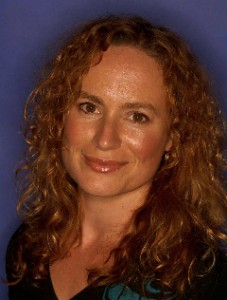 1. Who are the short fiction authors you admire (Australian or otherwise, alive or dead)?
1. Who are the short fiction authors you admire (Australian or otherwise, alive or dead)?
For short stories I love Joan London, Cate Kennedy, Lorrie Moore, Jhumpa Lahiri, Anne Enright, Annie Proulx, Raymond Carver and of course I can’t not mention Chekhov.
2. What is the most memorable short story you have read? And why does it stand out for you?
Shirley Jackson’s “The Lottery” bowled me over when I first read it. I love the way it is told in such an ordinary, innocent a way. You completely buy into the village life she has created but gradually become horrified as you begin to understand the implications of what’s being suggested. I also love the fact that this little story could have such a huge reaction at the time it was published (1948), with people cancelling their subs to The New Yorker and sending Jackson hate mail. Just goes to show how powerful the short story can be.
3. What do you like about the short story form?
Good ones remain with you long after you’ve read them; like a great painting, they can create a mood in so few words; they are done before you’ve had time to get bored, and yet they never seem over.
4. How would you describe your own writing?
It’s a love-hate relationship. The first draft is like drawing blood from a stone. I wonder why the hell I do it. I avoid the desk at every opportunity and find more and more elaborate ways of not writing, until I become so angry and bored with myself I end up writing. When I finally have the bones, though, I’m in my element, re-drafting, re-drafting, re-drafting. A story is never finished – you just get sick of it (who said that?).
5. Which of your stories are you most fond of right at this moment and why?
“Fond” would be a very euphemistic word to describe the way I feel about any of my stories. I just learn to dislike them less the more other people publish them.
6. Where do the ideas for your stories come from? (Take us through an example)
It might be a conversation you had with a friend five years ago, coupled with a trip you took last week. Your friend gave you the idea but the trip gave you a landscape. With me it is never just one thing but a blend of ideas. Sometimes you a have a line in a notebook that you suspect will be a story, but it is years before you know what to do with it. Warning: if you don’t write it down straight away, though, it will be gone forever. I have kicked myself many times for this mistake.
7. What is your writing process – from idea to publication? (Do you go it alone or are others involved?)
I always go it alone at first. The first words are so heinous to me I couldn’t bear anyone else to see them. After a while I might show the three girls in my writer’s group. We became friends via the group and a love of writing, not the other way round, so I really trust their opinions. They always pull me up on the things that haven’t been sitting easy with me, which is when you know you’ve got good readers. I still get very uncomfortable with my partner, friends or family reading my work even after publication. It’s like I’m schizophrenic and writing is another personality that I need to hide from them for their own good.
8. Do you feel the short story form is valued in Australia? What makes you say this?
I think it has gained some ground in recent years, but I still don’t know about being “valued”. Ezines and online publications and competitions will help that momentum, as will the growth in writing courses focusing on short stories. There are also a lot of established names publishing short story collections at the moment, so that helps validate the form. But having worked in a bookshop I know that short story collections are much harder to sell via traditional streams than novels, even to avid readers. Short stories will always have a cult following.
9. How do you feel about your work being published in non-print forms such as digital and audio?
The short story form must jump on the bandwagon of the radical changes to publishing that are taking place today, as long as non-print form doesn’t mean non-paying form! I’m hoping audio book possibilities for shorts are going to grow. I personally listen to many short stories and novels as audio books and it has increased my reading tenfold. Not to mention the fact that books I might have previously struggled through, have suddenly come alive with the right narrator.
10. What advice would you like to offer Spineless Wonders?
If you want to write a novel write a novel. If you want to write short stories, write short stories. If you are serious about shorts, do them the honour of studying them in their own right by varied reading. Other than that, I find I have to remind myself every day what a good writing teacher once told me: “Don’t take it too seriously – it’s only a story!”
